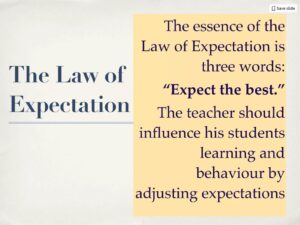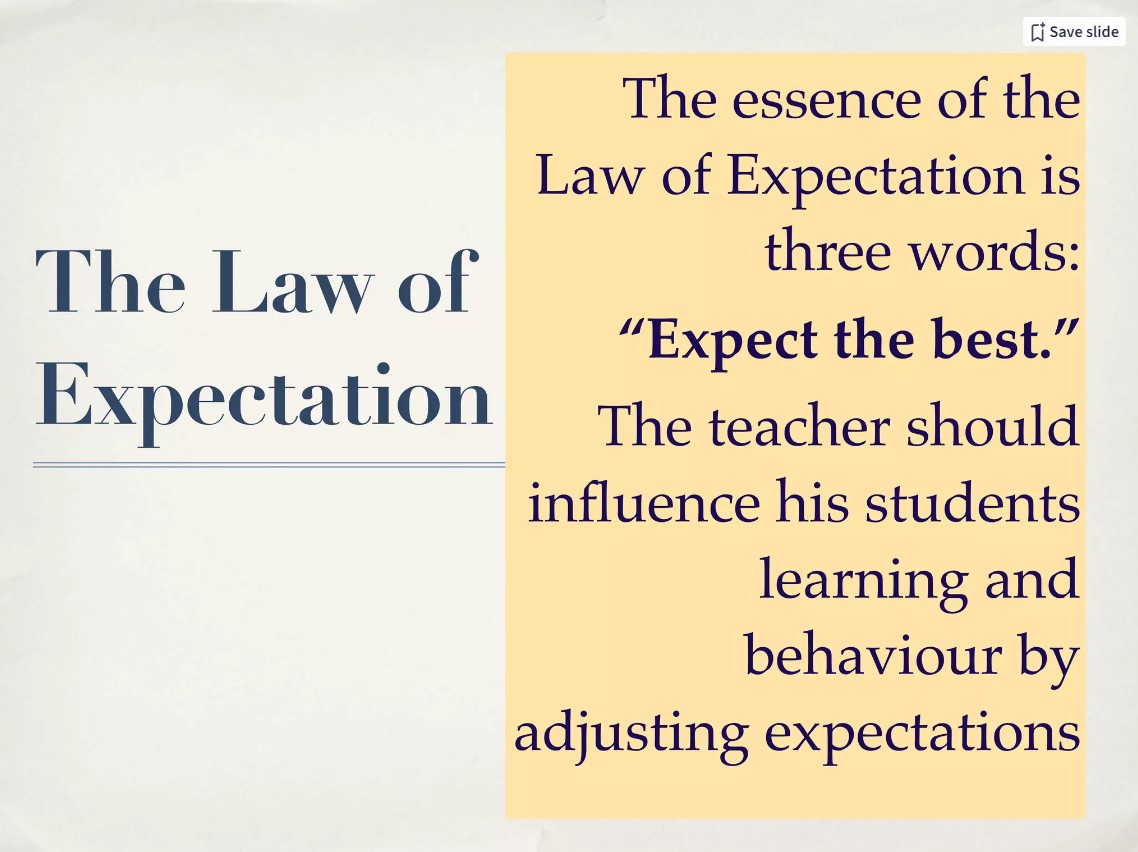The Law of Expectation, a principle deeply rooted in the psychology of belief and the power of mindset, posits that what we expect from life, with conviction, tends to manifest in our reality. This concept isn’t just wishful thinking; it’s supported by the psychological phenomena of self-fulfilling prophecy, where our expectations influence our actions, which in turn, make those expectations come true. Understanding and leveraging the Law of Expectation can significantly impact our lives, from personal growth to professional achievements.
The Essence of Expectation
 Expectations act as a guiding force, subtly steering our decisions, behaviors, and interactions. When we expect success, our actions align with that outcome. We become more resilient, resourceful, and engaged in activities that contribute to achieving our goals. Conversely, low expectations can trap us in a cycle of mediocrity, where our actions (or lack thereof) align with less favorable outcomes.
Expectations act as a guiding force, subtly steering our decisions, behaviors, and interactions. When we expect success, our actions align with that outcome. We become more resilient, resourceful, and engaged in activities that contribute to achieving our goals. Conversely, low expectations can trap us in a cycle of mediocrity, where our actions (or lack thereof) align with less favorable outcomes.
The Psychological Foundation
The power of expectation is rooted in cognitive psychology. It influences our mindset, which in turn affects our behavior. For instance, if a student expects to do well in an exam, they’re more likely to engage in behaviors that contribute to that outcome, such as studying effectively and managing their time well. This doesn’t mean that expectation alone will ensure success, but it sets the stage for constructive behaviors.
Raising Your Expectations
Raising our expectations is not about setting unrealistic goals but about aiming higher while being prepared to put in the work required to achieve them. Here are strategies to elevate your expectations:
- Visualize Success: Visualization is a powerful tool. Imagine achieving your goals in vivid detail. This mental rehearsal boosts confidence and solidifies your expectation of success.
- Set Achievable, Yet Challenging Goals: Goals should stretch your capabilities without being so far out of reach that they seem impossible. Find that sweet spot where ambition meets realism.
- Surround Yourself with Positivity: The people around us can significantly impact our mindset. Surround yourself with individuals who have high expectations for themselves and encourage yours.
- Cultivate a Growth Mindset: Embrace challenges as opportunities for growth. View setbacks as learning experiences, not failures.
- Affirmations and Positive Self-Talk: Regularly affirm your ability to achieve your goals. Positive self-talk can reinforce your belief in your expectations.
Real-Life Application
Applying the Law of Expectation in real life means aligning your actions with your desired outcomes. For example, if you’re seeking a promotion, expect that you are capable and prepare by taking on more responsibilities, seeking feedback, and enhancing your skills. Your actions, driven by your expectations, will open the door to opportunities.
Managing Expectations
While high expectations can propel us forward, it’s essential to manage them to avoid disappointment. This means being realistic, adaptable, and resilient. Life is unpredictable, and while we can steer our ship with our expectations, we must also be prepared to adjust our sails when the wind changes direction.
Conclusion
The Law of Expectation holds that our beliefs about what we can achieve significantly influence our actions and, consequently, our outcomes. By raising our expectations and aligning our actions with our goals, we can harness the power of this law to create a more fulfilling and successful life. Remember, what you expect with confidence becomes your own self-fulfilling prophecy. Aim high, work hard, and watch as your expectations become your reality.




